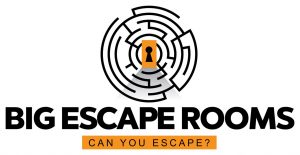30 Compelling Reasons Why Escape Rooms are Great for Your Mental Health

In recent years, escape rooms have gained immense popularity not just as a source of entertainment but also as a unique and effective way to boost mental health. These immersive experiences challenge participants to solve puzzles, think critically, and work collaboratively—all of which contribute to overall cognitive well-being. In this blog post, we’ll delve into 30 reasons why escape rooms are fantastic for your mental health, and how Big Escape Rooms in Atlanta can be the perfect tool.
- Cognitive Stimulation: Escape rooms immerse participants in a mentally challenging environment where solving intricate puzzles and decoding clues activate various cognitive functions. This engagement not only sharpens problem-solving skills but also enhances critical thinking and overall mental agility.
- Stress Relief: The captivating nature of escape rooms allows participants to momentarily escape the pressures of daily life. By focusing on solving puzzles, individuals experience a welcome diversion, reducing stress levels and promoting mental relaxation. At Big Escape Rooms booking and preparing for escape rooms is a stress-free task.
- Teamwork and Collaboration: Escape room scenarios often require participants to work together towards a common goal. This collaborative effort fosters a sense of camaraderie, improves communication skills, and provides a valuable lesson in effective teamwork.
- Enhanced Memory Function: Remembering details, codes, and sequences within the time constraints of an escape room contributes to improved memory function. This heightened memory recall not only aids in the immediate challenge but also carries over into daily life.
- Boost in Creativity: Escape rooms encourage participants to think creatively and outside the box. The diverse range of puzzles and challenges promotes creative thinking skills that can be applied to various aspects of life, fostering innovation and adaptability.
- Improved Concentration: With the ticking clock, escape rooms demand focused attention and concentration. This heightened concentration improves participants’ ability to stay focused on tasks, enhancing overall productivity and efficiency.
- Sense of Accomplishment: Successfully completing an escape room scenario provides a tangible sense of accomplishment. This achievement releases endorphins, contributing to a positive mental state and reinforcing a belief in one’s abilities.
- Social Interaction: Escape rooms facilitate face-to-face social interaction. By collaborating with others, participants forge connections, strengthen social bonds, and reduce feelings of isolation, contributing to overall mental well-being.
- Time Management Skills: The time constraints inherent in escape rooms teach effective time management. Participants learn to prioritize tasks and manage their time efficiently, skills that can be applied in various aspects of daily life.
- Problem-Solving Under Pressure: Simulating high-pressure situations, escape rooms cultivate the ability to make quick and effective decisions. This skill is invaluable in personal and professional settings, enhancing one’s capacity to navigate challenging circumstances.
- Enhanced Communication Skills: Effective communication is essential within the confines of an escape room. Participants improve their ability to articulate ideas, actively listen to others, and convey information clearly—a skill set with far-reaching benefits.
- Embracing Challenges: Escape rooms present participants with challenges that may initially seem daunting. Successfully overcoming these challenges fosters resilience, instilling a positive and determined mindset when faced with difficulties.
- Mood Elevation: The excitement of solving puzzles and the satisfaction of a successful escape contribute to a positive mood elevation. Engaging in enjoyable activities within escape rooms releases neurotransmitters associated with happiness, promoting emotional well-being.
- Diverse Themes for Engagement: The availability of various themes caters to different interests, ensuring that participants find an engaging and personalized experience tailored to their preferences.
- Enhanced Spatial Awareness: Navigating through the physical space of an escape room enhances spatial awareness. This heightened awareness improves coordination and spatial reasoning skills, contributing to overall cognitive development.
- Camaraderie Building: Shared experiences in escape rooms create lasting memories and strengthen bonds. The shared accomplishment of escaping fosters a sense of camaraderie and teamwork, reinforcing social connections.
- Positive Reinforcement: Escape rooms often incorporate positive reinforcement mechanisms, such as unlocking a new clue or discovering a hidden passage. This reinforces positive behavior and contributes to a more optimistic mental state.
- Mindfulness in Problem-Solving: The immersive nature of escape rooms encourages participants to be present in the moment. This fosters mindfulness, promoting focused attention on solving puzzles that can translate into mindfulness practices in daily life.
- Promotion of Positive Competition: Healthy competition within the context of an escape room scenario can be motivating. The desire to succeed fosters a competitive spirit that encourages participants to push their mental boundaries, driving personal growth.
- Escape from Routine: Engaging in escape rooms provides a mental break from routine activities, offering a refreshing and novel experience that stimulates the mind and enhances overall mental well-being.
- Enhanced Decision-Making Skills: Quick and effective decision-making is a crucial aspect of escape rooms. Participants learn to evaluate options, make decisions, and adapt their strategies, enhancing their decision-making skills for real-world situations.
- Stimulation of Multiple Senses: Escape rooms engage multiple senses, from deciphering codes to feeling textures. This multisensory stimulation enhances cognitive functioning and sensory perception, providing a holistic mental workout.
- Facilitation of Emotional Expression: Some escape room scenarios evoke emotions, allowing participants to express and process feelings in a controlled environment. This emotional expression can have therapeutic benefits, aiding in stress relief and emotional well-being.
- Adaptability to Change: Escape rooms often introduce unexpected twists and turns. Navigating through these surprises teaches adaptability—a vital skill for managing life’s uncertainties and embracing change.
- Enhanced Patience: Solving complex puzzles within a time limit may require patience. Engaging in escape rooms helps build patience and resilience in the face of challenges, fostering emotional well-being.
- Boost in Self-Esteem: The successful completion of an escape room scenario boosts self-esteem and self-confidence. Recognizing one’s abilities to overcome challenges contributes to a positive self-image and mental well-being.
- Encouragement of Lifelong Learning: The diverse nature of puzzles encourages a mindset of lifelong learning. Participants develop a curiosity to explore and acquire new skills, promoting continuous intellectual growth.
- Opportunity for Reflection: Escape rooms provide moments for reflection, allowing participants to contemplate their thought processes and problem-solving strategies. This reflective practice can lead to personal insights and self-awareness.
- Encouragement of Playfulness: Escape rooms promote a sense of playfulness and curiosity. Engaging in play has been linked to improved mental health and overall well-being, offering a lighthearted and enjoyable experience.
- Fostering a Sense of Wonder: Escape rooms tap into our innate sense of wonder and curiosity. The exploration of mysteries and the unknown fosters a childlike sense of wonder, contributing to a more vibrant and imaginative mindset that positively impacts mental health.
Escape rooms go beyond being mere entertainment; they offer a multitude of benefits for mental health. From cognitive stimulation to fostering social connections and promoting emotional well-being, the reasons to indulge in escape room adventures are vast. So, the next time you’re looking for a unique and enriching experience, consider an escape room—a key to unlocking not just puzzles but a path to improved mental health and well-being.


